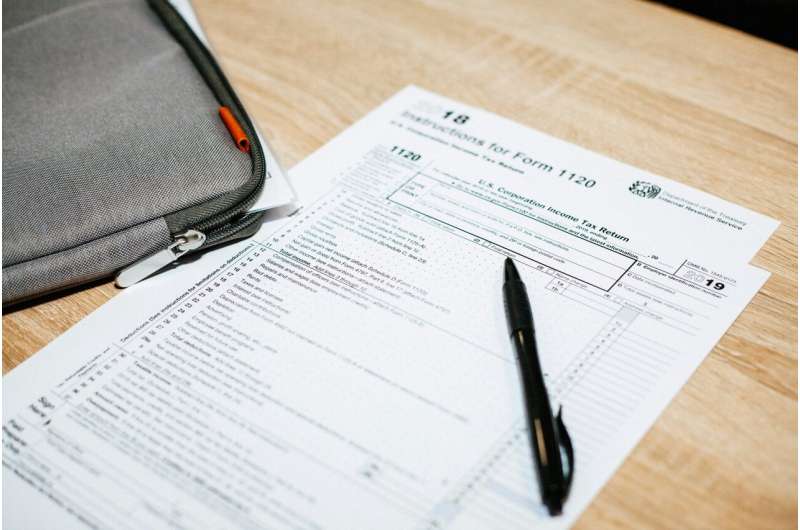This article has been reviewed according to Science X's editorial process and policies. Editors have highlighted the following attributes while ensuring the content's credibility:
fact-checked
peer-reviewed publication
trusted source
proofread
Paying fairly: Insights from new study on tax fraud prevention

A recent study from the University of Waterloo has provided critical insights into how penalty severity and social norms influence tax compliance, particularly in the context of COVID-19 relief fraud. The work is published in the Journal of Business Ethics.
The study was conducted by professor Dr. Tisha King of Waterloo's School of Accounting and Finance and investigates the behavioral responses of taxpayers when faced with different levels of penalties and social norms, revealing significant findings that can help shape future policies and improve tax compliance.
"This paper extends my previous research by exploring a spectrum of just and unjust punishments. The research establishes that the severity of penalties can encourage compliance and uses a novel approach to measure social norms," explains King.
"One of the key findings of the study is that imposing appropriately severe penalties can deter fraudulent behavior, but only to a certain extent." says King. "Focusing on appropriate penalties even when taxpayers perceive that their peers are not complying with tax regulations, can still inspire tax compliance."
However, if people think their peers aren't paying their fair share, they may become less likely to pay taxes themselves.
The study involved extensive data collection and analysis, utilizing a combination of surveys, experiments and statistical modeling. A two-part survey (Study 1) and an experiment (Study 2) were conducted where participants had to make decisions about reporting their income and claiming COVID-19 relief funds.
In the first study, participants were informed of the penalties for false reporting on their taxes, ranging from mild to severe. Then the survey participants were asked to share their perceptions of these penalties for engaging in tax fraud as a taxpayer.
In the second study, participants took part in an experiment where they were exposed to different levels of penalties for tax fraud and received information about how much their peers were complying with tax rules. The results showed that appropriate penalties do work, even when social norms may not appear to be supportive.
However, there's a tipping point: if too much focus is placed on people who aren't paying their fair share, the positive effects of appropriate penalties can be weakened.
"Practically, this research highlights that tax authorities should consider what information most positively influences compliance as well as how and when they should release this information to the public to encourage compliance," says King.
"Globally, as billions of dollars were lost due to fraudulent COVID-19 relief claims, this study highlights the need for better monitoring and enforcement mechanisms to ensure that relief funds and funding for other crisis-related benefits such as unemployment or disaster recovery relief, reach those who genuinely need them."
More information: Tisha King, First Things First: Using Anchoring Bias to Examine the Effect of Penalty Severity and Social Norms on Tax Compliance, Journal of Business Ethics (2024). DOI: 10.1007/s10551-024-05750-8
Journal information: Journal of Business Ethics
Provided by University of Waterloo





















